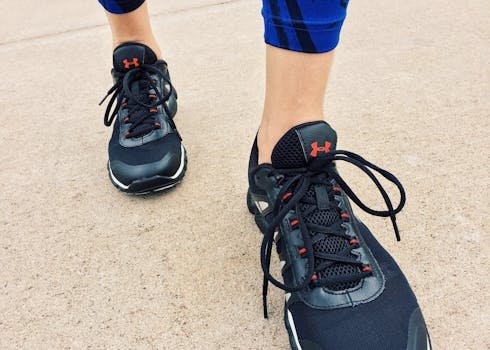Are you looking for simple ways to improve your health, manage your weight, and boost your energy levels? The answer might lie in something you already do every day: Non-Exercise Activity Thermogenesis, or NEAT. This comprehensive guide, brought to you by Dr. Sumaiya NutriCare Clinic, will explore what NEAT is, how it impacts your health, and practical strategies to incorporate more NEAT into your daily life.
- What is NEAT?
- NEAT and Weight Management
- Metabolic Benefits of NEAT
- NEAT and Mental Well-being
- Strategies for Increasing NEAT
- The Dangers of Prolonged Sitting (Even with Exercise)
- Take Action Today!
- References
What is NEAT?
Non-Exercise Activity Thermogenesis (NEAT) refers to the energy expended for everything we do that is *not* sleeping, eating, or structured exercise. It encompasses all the small movements and activities you perform throughout the day, such as:
- Walking around your home or office
- Standing while working or talking
- Fidgeting (tapping your feet, shifting in your chair)
- Doing household chores (cleaning, gardening)
- Taking the stairs
- Playing with children or pets
- Even maintaining posture
As a registered dietitian, Dr. Sumaiya emphasizes that NEAT is a crucial, yet often overlooked, component of your overall daily energy expenditure.

NEAT and Weight Management
Weight management is about balancing the calories you consume with the calories you burn. While diet and exercise are essential, NEAT plays a significant role in tipping that balance. A sedentary lifestyle, characterized by low NEAT, can lead to an energy surplus, contributing to weight gain over time. Even small increases in NEAT can make a difference.
Metabolic Benefits of NEAT
Beyond weight management, regular NEAT positively impacts your metabolic health:
- Improved Insulin Sensitivity: Studies show that increased NEAT can improve your body’s ability to use insulin effectively, helping to regulate blood sugar levels.
- Better Glucose Metabolism: Frequent movement throughout the day helps your body process glucose more efficiently, reducing the risk of type 2 diabetes.
- Cardiovascular Health: NEAT contributes to overall cardiovascular fitness by improving blood flow and reducing blood pressure.
NEAT and Mental Well-being
The benefits of NEAT extend beyond physical health. Moving more throughout the day has been shown to:
- Boost Mood: Physical activity, even at low levels, releases endorphins, which have mood-boosting effects.
- Reduce Stress: Movement can help to alleviate stress and anxiety.
- Improve Cognitive Function: Studies suggest that increased physical activity can enhance focus, concentration, and memory.
Strategies for Increasing NEAT
Integrating more NEAT into your day doesn’t require drastic changes. Here are some simple, effective strategies:
- Stand Up Regularly: If you have a desk job, aim to stand up and move around for a few minutes every 30-60 minutes.
- Walk More: Take short walks during breaks, park further away from your destination, or walk to nearby stores instead of driving.
- Use the Stairs: Opt for the stairs instead of the elevator or escalator whenever possible.
- Fidget: Don’t be afraid to fidget! Tapping your feet, shifting in your chair, and other small movements can contribute to your daily NEAT.
- Active Household Chores: Embrace household chores like cleaning, gardening, and laundry as opportunities to increase your NEAT.
- Stand While Talking on the Phone: Pace or stand while you are on phone calls.
- Play with Kids or Pets: Engaging in active play is a fun way to boost NEAT.
- Use a Standing Desk: Consider using a standing desk or a sit-stand desk converter to reduce sedentary time.
- Wearable Trackers: Using a wearable device like a fitness tracker can be valuable to monitor your steps and movements, and provide reminders to move more.

The Dangers of Prolonged Sitting (Even with Exercise)
It’s crucial to understand that even if you exercise regularly, prolonged periods of sitting can still be detrimental to your health. This is sometimes referred to as the “active couch potato” phenomenon. Research has linked prolonged sitting to:
- Increased risk of chronic diseases (cardiovascular disease, type 2 diabetes, metabolic syndrome)
- Negative impacts on cardiovascular health (higher blood pressure, unfavorable lipid profiles)
- Reduced insulin sensitivity
- Increased risk of premature mortality
- Musculoskeletal issues (poor posture, back pain)
This highlights the importance of breaking up prolonged sitting throughout the day, regardless of your exercise habits.
Take Action Today!
NEAT is a powerful tool for improving your overall health and well-being. Start incorporating these strategies into your daily routine and experience the benefits for yourself!
For personalized guidance on optimizing your nutrition and lifestyle, schedule a consultation with Dr. Sumaiya. Fill out the patient history form to get started and receive free advice via email.
References
- Levine JA. Non-exercise activity thermogenesis (NEAT). Best Pract Res Clin Endocrinol Metab. 2002 Dec;16(4):679-702. doi: 10.1053/beem.2002.0227. PMID: 12468415.
- Hamilton MT, Hamilton DG, Zderic TW. Role of low energy expenditure and sitting in obesity, metabolic syndrome, type 2 diabetes, and cardiovascular disease. Diabetes. 2007 Nov;56(11):2655-67. doi: 10.2337/db07-0882. Epub 2007 Aug 27. PMID: 17724296; PMCID: PMC2453652.
- Healy GN, Dunstan DW, Salmon J, Cerin E, Shaw JE, Zimmet PZ, Owen N. Breaks in sedentary time: beneficial associations with metabolic risk. Diabetes Care. 2008 Apr;31(4):661-6. doi: 10.2337/dc07-2045. Epub 2008 Jan 14. PMID: 18227484.
- Biswas A, Oh PI, Faulkner GE, Bajaj RR, Silver MA, Mitchell MS, Alter DA. Sedentary time and its association with risk for disease incidence, mortality, and hospitalization in adults: a systematic review and meta-analysis. Ann Intern Med. 2015 Jan 20;162(2):123-32. doi: 10.7326/M14-1651. PMID: 25599350.



